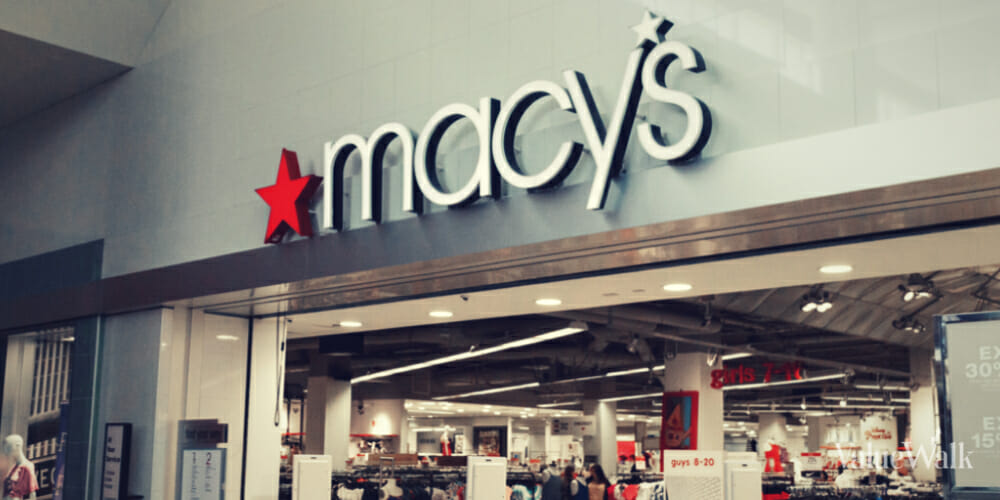Recession-Proof Your Portfolio with the Best Stocks to Buy Now

Amid economic headlines of slowing growth and persistent inflationary pressures, navigating the financial markets can feel like navigating turbulent waters. The Commerce Department estimates that U.S. gross domestic product (GDP) has slowed to annual growth. 1.3% in the first quarter This is a slowdown from the brisk growth rate of 3.4% observed at the end of 2023. This highlights the shift from strong expansion to more relaxed economic activity.
Despite this slowdown, the Consumer Price Index (CPI) 3.3% increase in May Compared to a year ago, it was slightly lower than 3.4% in April. That’s down from the pandemic-era high of 9.1% in 2022, but still higher than policymakers’ target of about 2%.
The investment environment is becoming increasingly complex as the Federal Reserve works to curb inflation through successive rate hikes. In this environment, the quest for recession-proof investments has become paramount for risk-averse investors to protect their portfolios from economic downturns.
Food manufacturers, historically known for their resilience during economic downturns, are increasingly in demand. This inventory includes essential products such as packaged foods, beverages, and household essentials that consumers continue to prioritize even during economic downturns.
This article highlights the top three stocks of food manufacturers. General Mills (GIS), Tyson Foods (TSN)and Campbell Soup Company (CPB), consider investing if you are looking for a recession-proof portfolio. Now, let’s take a closer look at the fundamentals and growth prospects of these stocks.
General Mills (GIS)
food maker General Mills (GIS) Our lineup of beloved brands encompasses everything from cereals to snacks, yogurt, baked goods, and even pet food, making us a household name for decades. You probably grew up with iconic brands like Cheerios, Haagen-Dazs, Betty Crocker, and Yoplait.
In the third quarter earnings reportGIS has demonstrated growth in both top and bottom lines as it navigates easing inflation, stabilizing supply chains, and a cautious yet resilient consumer base.
For the third quarter of fiscal 2024, which ended February 25, 2024, GIS’ net sales reached $5.09 billion, surpassing analysts’ expectations of $4.97 billion. Adjusted gross margin increased 13.2% year over year to $914.5 million.
Additionally, adjusted net income under GIS increased 15.9% year-over-year to $674 million, and adjusted EPS increased 1.8% year-over-year to $1.17. The company also beat consensus revenue estimates by $0.12.
Looking ahead, Wall Street expects GIS to record earnings per share of $1 in the fourth quarter (ending May 2024), which would be down 10.8% from last year’s quarter. The company is expected to generate revenue of $4.87 billion during the same period, down 3.1% from the same period last year.
But given General Mills’ track record of beating earnings estimates in each of the four subsequent quarters, there’s plenty of optimism that it could exceed expectations once again in 2020. Scheduled to be announced quarterly.
General Mills is preparing for the remainder of fiscal 2024 with an eye toward consumer economic health, slowing inflation and improving supply chain stability. The company expects organic net sales to be flat or slightly down 1%. However, we are confident that we expect adjusted operating profit and constant EPS to grow by 4-5%.
When it comes to rewarding shareholders, General Mills offers a stable dividend, with a four-year average yield of 3.13% and a payout ratio of 49.9%. GIS’ current annual dividend of $2.36 translates to a yield of 3.61% based on the current stock price. Moreover, the company has increased its dividend payments at a CAGR of 5.3% over the past three years.
Despite the positive earnings report, GIS stock is down nearly 20% over the past year and more than 7% over the past month. But the stock has delivered marginal gains year-to-date, reflecting its resilient performance amid broader market challenges.
Tyson Foods (TSN)
Tyson Foods (TSN) It is known for its leadership in protein and its lineup of household brands including Tyson, Jimmy Dean, Hillshire Farm and Ball Park. The company has its half year performance May 6 demonstrated resilience and growth in a competitive market.
During its fiscal second quarter (ending March 30, 2024), TSN had revenue of $13.07 billion, slightly lower than $13.13 billion in the year-ago quarter. However, attributable non-GAAP net income amounted to $220 million compared to an adjusted net loss of $12 million in the prior year.
Likewise, the company’s adjusted operating income came in at $406 million, a significant increase compared to the year-ago quarter. The company’s non-GAAP EPS came in at $0.62 (comfortably above Street’s estimate of $0.40), compared with a loss of $0.04 per share a year ago.
The consensus EPS estimate for the fiscal third quarter (ending June 2024) is $0.62, representing a 315.3% year-over-year improvement. The consensus revenue estimate for the quarter is $13.17 billion, up slightly from the previous year. Moreover, Tyson Foods has a track record of outstanding performance surprises. It has topped consensus EPS estimates in three of the last four quarters.
Tyson Foods announced its quarterly cash flow results, with strong free cash flow totaling $556 million in the first half of the year. Dividend per share of $0.49 $0.441 per share for Class A common stock and Class B common stock, payable on September 13, 2024.
TSN’s four-year average dividend yield is 2.80%, and an annual dividend of $1.96 translates to a yield of 3.58%. Tyson Foods has increased its dividend for the 12th consecutive year, reflecting its commitment to returning value to investors. Additionally, dividend payments have grown at a CAGR of 3.6% over the past three years and at a CAGR of 6.5% over the past five years.
Looking ahead to fiscal 2024, Tyson Foods expects total adjusted operating income to be in the range of $1.4 billion to $1.8 billion and sales to be relatively flat compared to fiscal 2023. Despite market volatility, TSN stock has shown resilience, rising more than 8% month-over-month. Over the past six months to date, it has increased by almost 2%.
Campbell Soup Company (CPB)
Campbell Soup Company (CPB) A staple in American kitchens, it is known for its wide range of products, including iconic soups, snacks, beverages and fresh packaged foods. The company owns popular brands like Pepperidge Farm, V8, and Snyder’s-Lance that many of us have grown up with. It primarily operates through two segments: Meals & Beverages and Snacks.
inside Latest Earnings Report, the company beat analysts’ expectations on both revenue and revenue. In the fiscal third quarter ending April 28, 2024, CPB’s net sales increased 6.3% year-over-year to $2.37 billion, thanks in part to the acquisition of Sovos Brands.
Additionally, the Company’s Adjusted EBIT and non-GAAP attributable net income increased 13.1% and 9.8%, respectively, year-over-year to $354 million and $224 million. Additionally, adjusted EPS was $0.75, up 10.3% year-over-year.
Analysts expect CPB’s revenue to reach $2.32 billion in its fiscal fourth quarter (ending July 2024), up 12.4% year-over-year. Additionally, EPS is expected to grow 23.9% year over year to $0.62. Additionally, it has topped consensus EPS and revenue estimates in three of the last four quarters.
On May 13, Campbell released its quarterly report. Dividend $0.37 Payment per share will be made on May 13, and will be paid out to shareholders on July 29, 2024. With a four-year average dividend yield of 3.17%, the current annual dividend of $1.48 translates to a yield of 3.46%. Over the past five years, Campbell’s has demonstrated its commitment to returning value to investors, with dividend payments growing at a compound annual growth rate (CAGR) of 7.1%.
Despite the upbeat earnings report, the food company’s stock price has fallen more than 6% over the past month, but has shown some gains over the past nine months. The company also adjusted its full-year guidance for 2024 to reflect the impact of the Sovos acquisition, projecting net sales growth of 3% to 4% and organic sales tracking a decline of approximately 1%. Adjusted EPS is expected to increase by 2% to 3% between $3.07 and $3.10.
Overall, Campbell remains a resilient company as it continues to adapt and grow in the food industry despite market fluctuations and economic challenges.
conclusion
Food manufacturer stocks have historically been resilient during economic downturns due to the inelastic nature of their products. As economic uncertainty increases, consumers prioritize spending on necessities such as food over discretionary items.
Packaged foods, beverages and other household essentials are becoming more important because they offer convenience and affordability, making them the go-to choice for families on a tight budget. Therefore, consistent demand for packaged food companies regardless of economic conditions highlights their defensive nature, providing a safe haven for risk-averse investors looking to protect their portfolios from economic downturns.
Given their essential products, strong brand loyalty, and consistent financial performance, packaged food stocks like GIS, TSN, and CPB offer improved stability and growth potential, making them attractive buys for investors seeking recession-proof portfolios.



